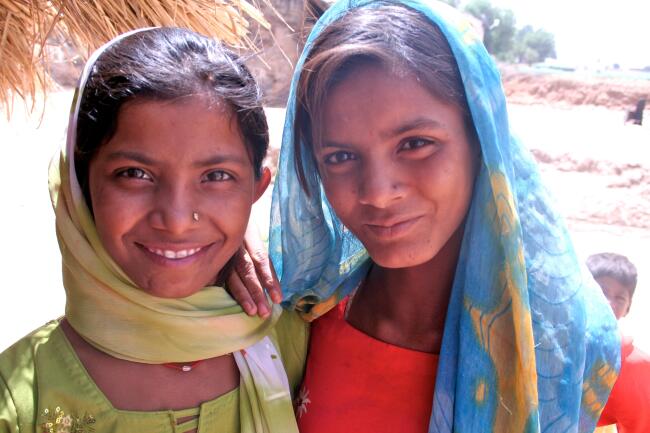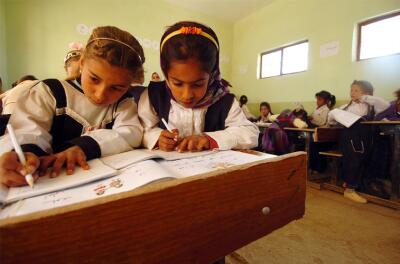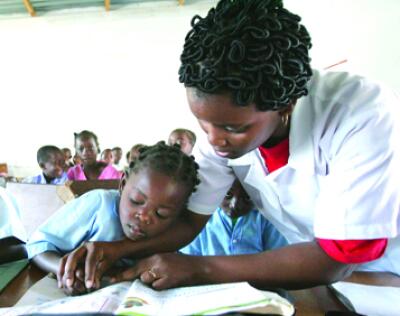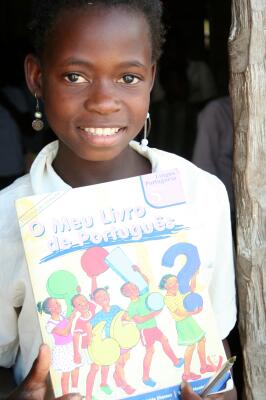International Day of the Girl Child

International Day of the Girl Child, celebrated October 11 each year, underscores global efforts to ensure a world free of discrimination for young women. The UN General Assembly adopted Resolution 66/170 in 2011, naming the day and drawing attention to the unique challenges and difficulties girls face around the world.
The theme for this year's International Day of the Girl Child is "EmPOWER Girls: Before, During, and After Crises." This theme marks the beginning of a year-long effort to confront the challenges girls face before, during, and after crises.

In order to achieve gender equality and the Sustainable Development Goals, it's essential to support and invest in adolescent girls by preventing gender-based violence and advancing their access to secondary education.
Girls Suffer Most During Disasters
When disasters like floods, earthquakes, and conflict strike, girls and women are the individuals who suffer the most. Not only are they left without food and shelter, they also go without special medical care and are more susceptible to dangers like human trafficking.
When clinics are wiped out by storms, pregnant women face dangerous deliveries and even death due to lack of medicines to help infections that could come about from pregnancy/delivery. Refugee settlements, often unlit and unprotected, can put young girls at risk of being harassed, raped, and even kidnapped.
Often times, crises destroy a family's livelihood, creating a violent environment, especially for young girls exposing them to domestic abuse. These catastrophic events often cause children to be removed from school, especially girls, either because the family is displaced from their home or the children are forced to work to help the family rebuild their income.

Differences in First and Second Decade of Life
Over the last 15 years, the global community has made progress in improving the lives of girls during early childhood. According to the UN, girls age 10 and younger are now more likely to enroll in primary school and receive vaccinations and are less likely to suffer from health and nutrition problems than in any other previous generation.
However, there are still considerable challenges faced by girls and young women in the second decade of life. Many still do not have access to quality secondary and higher education, are forced into child marriage, have little to no information and services related to health, are denied the means to protect themselves against unwanted pregnancy, and are frequently victims of gender-based violence.
Tragic Realities
- Worldwide, more than 700 million women alive today were married as children (below 18 years of age). More than one in three — or some 250 million — were married before 15. And child brides are often unable to effectively negotiate safe sex, leaving them vulnerable to sexually transmitted infections and unwanted pregnancy.
- Every 10 minutes, somewhere in the world, an adolescent girl dies as a result of violence.
- In emergencies, adolescent girls are especially vulnerable to sexual violence, and in some cases, are abducted and exploited for sexual purposes by armed groups.
- Nearly half of adolescent girls worldwide ages 15 to 19 think a husband or partner is justified in hitting or beating his wife or partner.
These outcomes are avoidable. Research has shown that if girls were allowed to complete secondary education in Sub-Saharan Africa and South and West Asia, child marriage would fall by more than half, from its current level of almost 2.9 million. Educated women are also more likely to have healthy babies and send their own children to school.
What We're Doing
 Planet Aid supports projects that aid the development of young girls, ensuring that they have a chance for an education and a better life. For example, Nikhalamo - Girl Stay in School (GSS) in Mozambique is a Planet Aid-supported initiative implemented by ADPP Mozambique and sponsored by USAID. "Nikhalamo" is a word used in the local Chuabo language of Mozambique that translates to "I am here to stay." GSS aims to reduce the obstacles that prevent girls from transitioning from upper primary school to secondary school.
Planet Aid supports projects that aid the development of young girls, ensuring that they have a chance for an education and a better life. For example, Nikhalamo - Girl Stay in School (GSS) in Mozambique is a Planet Aid-supported initiative implemented by ADPP Mozambique and sponsored by USAID. "Nikhalamo" is a word used in the local Chuabo language of Mozambique that translates to "I am here to stay." GSS aims to reduce the obstacles that prevent girls from transitioning from upper primary school to secondary school.
The project is working with 18 primary schools and 3 secondary schools in the Namacurra District. Project activities include providing gender-sensitivity training to school counselors and teachers, community awareness campaigns, and constructing latrines that are girl-friendly. More than 3,200 girls will be mentored through the program.
In 2016 alone, the GSS project helped more than 2,000 girls. Click here to learn more.
